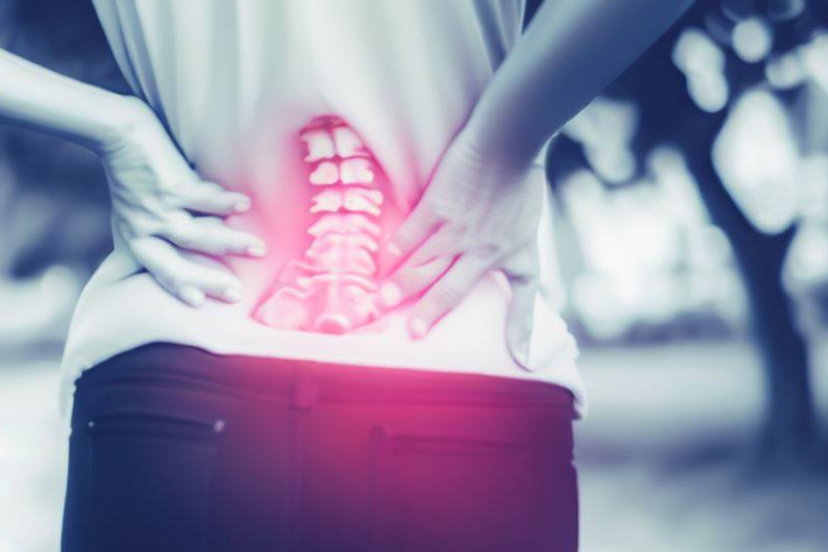Back Pain after Epidural: Coping Strategies and Helpful Suggestions
Epidural anesthesia is a widely used technique for pain management during labor and delivery. While it provides effective pain relief, some individuals may experience back pain after receiving an epidural. In this article, I will explore the causes of back pain after epidural and provide helpful suggestions on coping strategies and possible remedies. It is also important to note C Sections could also cause back issues and should seek medical advise immediately as this could be related to the epidural.
Causes of Back Pain after Epidural
Back pain after receiving an epidural can stem from various factors, both epidural-related and non-epidural-related. Understanding these causes can help individuals better manage and alleviate their discomfort.
Epidural-related factors include:
1. Needle insertion site soreness: Soreness or tenderness at the site where the needle was inserted can cause localized back pain.
2. Nerve irritation or damage: In rare cases, the nerves surrounding the injection site may become irritated or damaged, resulting in back pain.
3. Incorrect needle placement: If the needle is not inserted accurately, it may affect the surrounding tissues and nerves, leading to back pain.
4. Inadequate anesthesia: Sometimes, the epidural may not provide complete pain relief, causing individuals to experience residual discomfort or back pain.
Non-epidural-related factors contributing to back pain after epidural include:
1. Pre-existing back conditions: Individuals with pre-existing back issues such as herniated discs or muscle imbalances may experience increased back pain after receiving an epidural.
2. Poor posture during labor: Adopting incorrect or prolonged positions during labor, such as slouching or sitting in awkward positions, can strain the back muscles and contribute to post-epidural back pain.
3. Prolonged immobilization during labor: Remaining in the same position for an extended period during labor can result in muscle stiffness and back pain.
Coping with Back Pain after Epidural
Fortunately, there are several strategies and interventions that can help manage and alleviate back pain after receiving an epidural.
Physical therapy and exercise play a crucial role in managing back pain after epidural. Here are some effective strategies:
1. Stretching and strengthening exercises: Engaging in gentle stretching exercises, such as pelvic tilts and gentle back stretches, can help relieve muscle tension and improve flexibility. Strengthening exercises targeting the core and back muscles, under the guidance of a physical therapist, can provide stability and support to the back.
2. Postural correction techniques: Maintaining proper posture is essential for reducing back pain. Learning and practicing good posture techniques, such as aligning the spine and avoiding slouching, can help alleviate discomfort.
3. Pain management strategies can also offer relief: Heat or cold therapy: Applying a heating pad or taking warm baths can help relax tense muscles and alleviate pain. Alternatively, cold therapy in the form of ice packs or cold compresses can numb the area and reduce inflammation.
4. Over-the-counter pain relievers: Non-prescription pain medications can help manage mild to moderate back pain. However, it’s important to consult with a healthcare provider before taking any medication, especially if breastfeeding.
5. Topical creams or ointments: Topical analgesics, such as those containing menthol or capsaicin, can provide temporary relief by numbing the affected area or reducing inflammation.
6. Supportive measures can contribute to improved comfort: Proper body mechanics and lifting techniques: When lifting or carrying your baby, ensure you use proper body mechanics. Bend at the knees and avoid twisting motions to minimize strain on the back.
7. Using supportive pillows or cushions: Placing pillows or cushions in strategic positions can provide additional support while sitting or lying down. For example, using a lumbar roll or a cushion behind the back can help maintain proper spinal alignment.
8. Seeking professional help: If back pain persists or worsens, consulting with a chiropractor or physical therapist who specializes in postpartum care can be beneficial. They can provide specific exercises, manual therapies, or other treatments to address the underlying issues.
Precautions and Safety Measures
While managing back pain after epidural, it’s crucial to keep the following precautions and safety measures in mind:
1. Consulting with a healthcare provider: Always discuss any persistent or severe back pain with your healthcare provider. They can evaluate your condition, provide personalized recommendations, and rule out any underlying complications.
2. Avoiding self-diagnosis and self-medication: It’s important to avoid self-diagnosing or self-medicating without proper medical guidance. Each individual’s situation is unique, and a healthcare professional can provide the most appropriate advice and treatment options.
Conclusion
Experiencing back pain after receiving an epidural is not uncommon, but there are effective strategies to cope with and alleviate the discomfort. By implementing physical therapy exercises, pain management techniques, and supportive measures, individuals can find relief and regain their mobility. Remember to consult with a healthcare provider for personalized guidance and to ensure the safety and well-being of both the parent and the baby.
FAQs
1. Can back pain after an epidural be permanent?
Back pain after an epidural is typically temporary and improves over time with proper management and care. However, if the pain persists or worsens, it’s important to consult with a healthcare provider for further evaluation.
2. How long does back pain after an epidural typically last?
The duration of back pain after an epidural can vary from person to person. In most cases, the pain resolves within a few weeks to a couple of months with appropriate self-care and treatment. If pain persists for more than two weeks or if unsure I recommend you go to see a medical profession. Causes for back pain are different person to person.
3. Are there any alternative pain relief options for post-epidural back pain?
Yes, there are alternative pain relief options for post-epidural back pain. Some individuals find relief through complementary therapies such as acupuncture, chiropractic adjustments, or massage therapy. These therapies can help alleviate muscle tension, improve circulation, and promote overall relaxation. It’s important to consult with a qualified practitioner experienced in providing care for postpartum individuals.
4. Can I continue breastfeeding if I’m experiencing back pain after an epidural?
Generally, back pain after an epidural does not affect breastfeeding. However, if you have concerns or are experiencing significant pain that interferes with breastfeeding, it’s advisable to consult with a lactation consultant or healthcare provider. They can offer guidance on positioning and techniques to make breastfeeding more comfortable for both you and your baby.
5. When should I seek medical attention for back pain after an epidural?
It’s recommended to seek medical attention if you experience severe or persistent back pain, pain radiating down the legs, numbness or weakness in the lower extremities, or any other concerning symptoms. These could indicate a more serious underlying condition that requires further evaluation and treatment.
Remember, each individual’s experience with back pain after an epidural may vary, and it’s important to consult with a healthcare professional for personalized advice and guidance. By implementing appropriate coping strategies and seeking necessary support, you can effectively manage and alleviate post-epidural back pain, allowing you to focus on enjoying your journey into parenthood.
![Urban Health Hive]](https://urbanhealthhive.com/wp-content/uploads/2023/05/cropped-cropped-Health_Logo.png)



